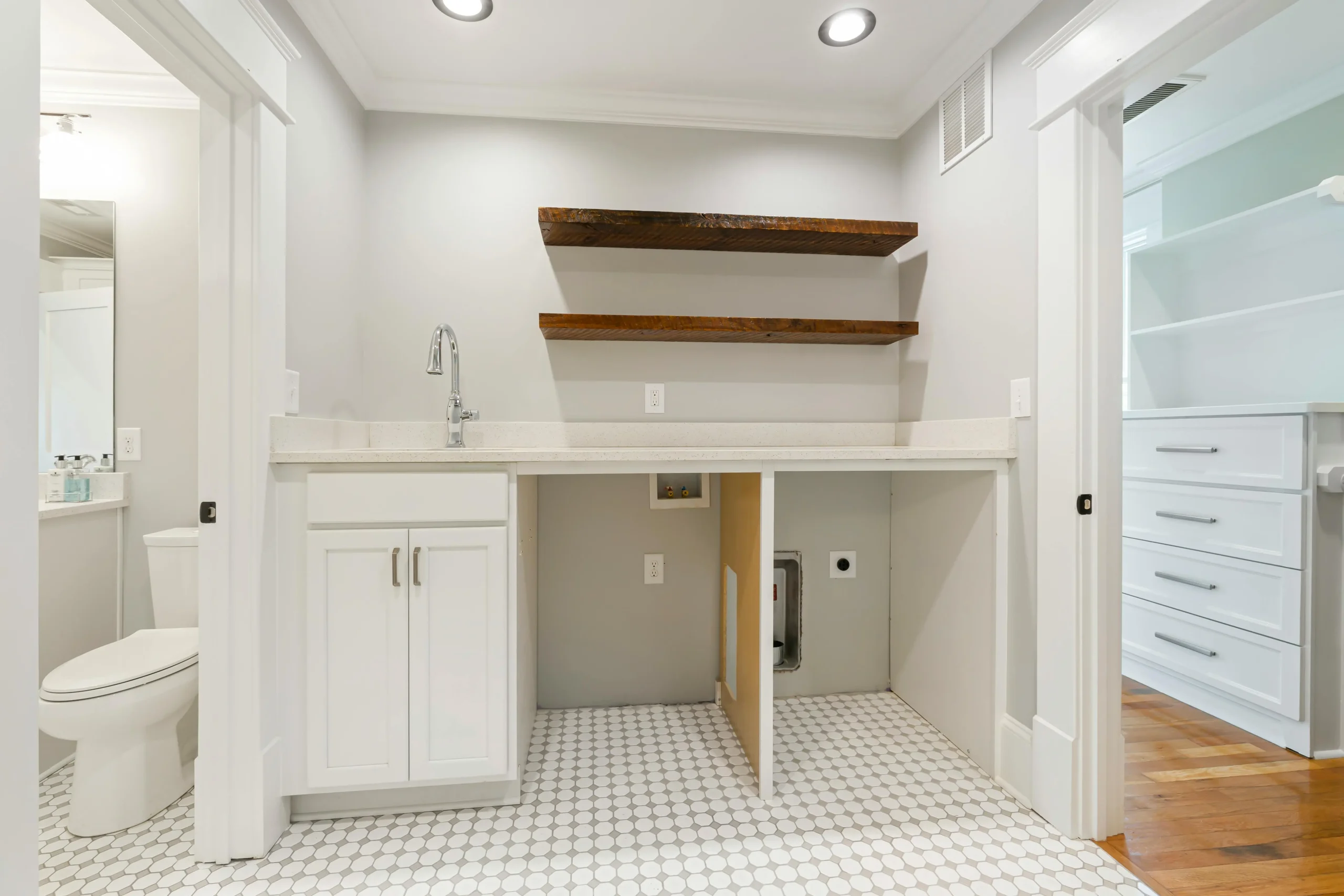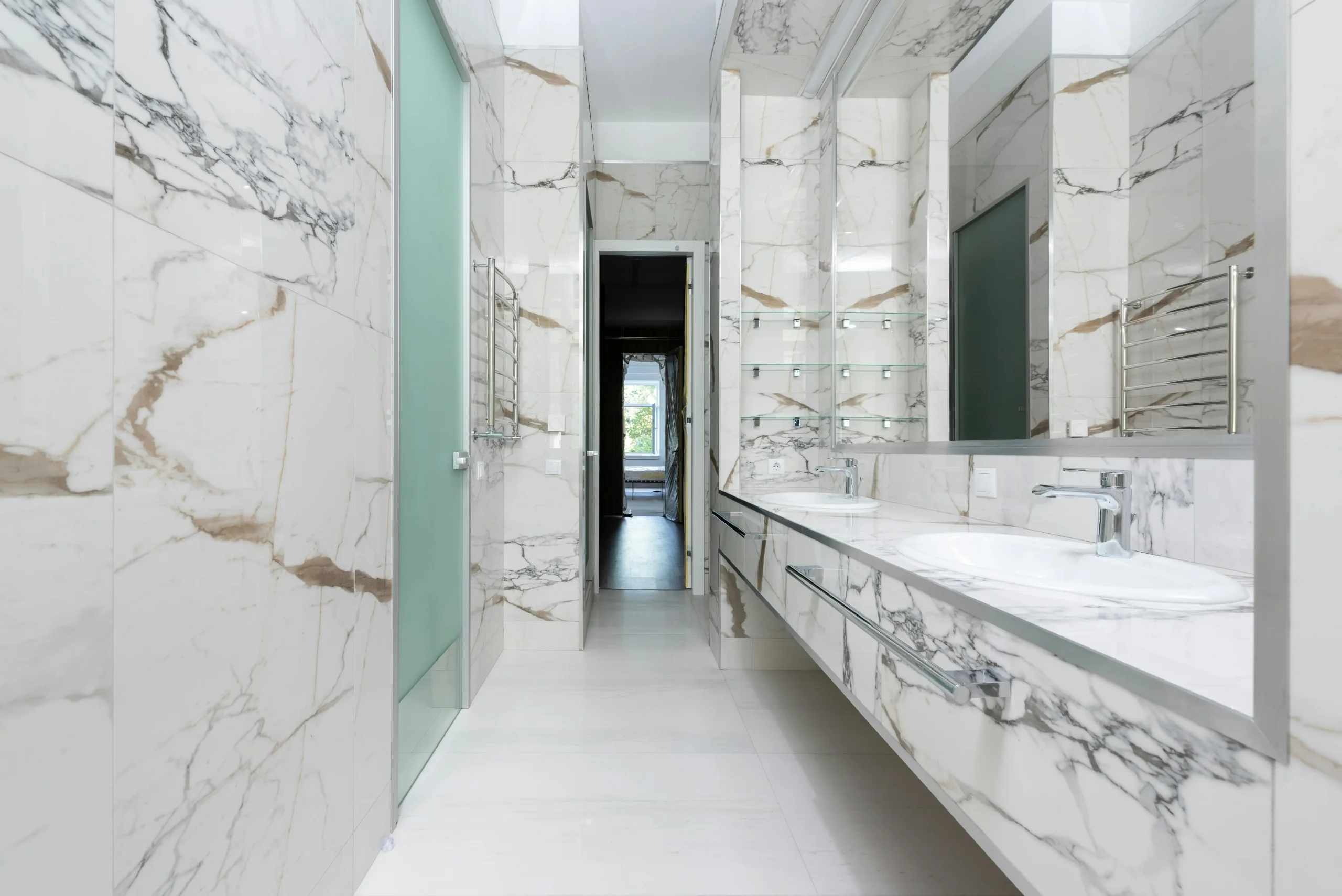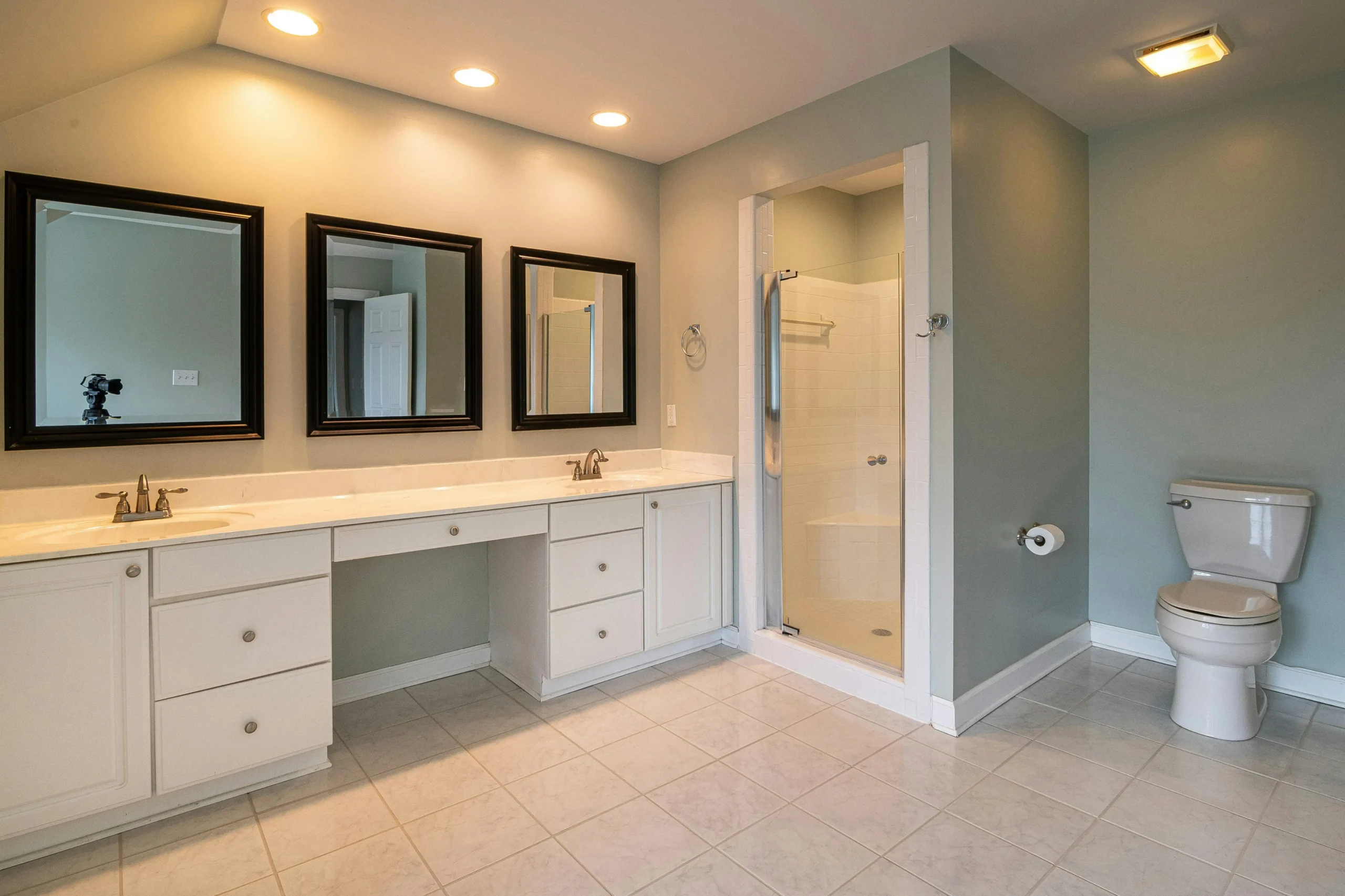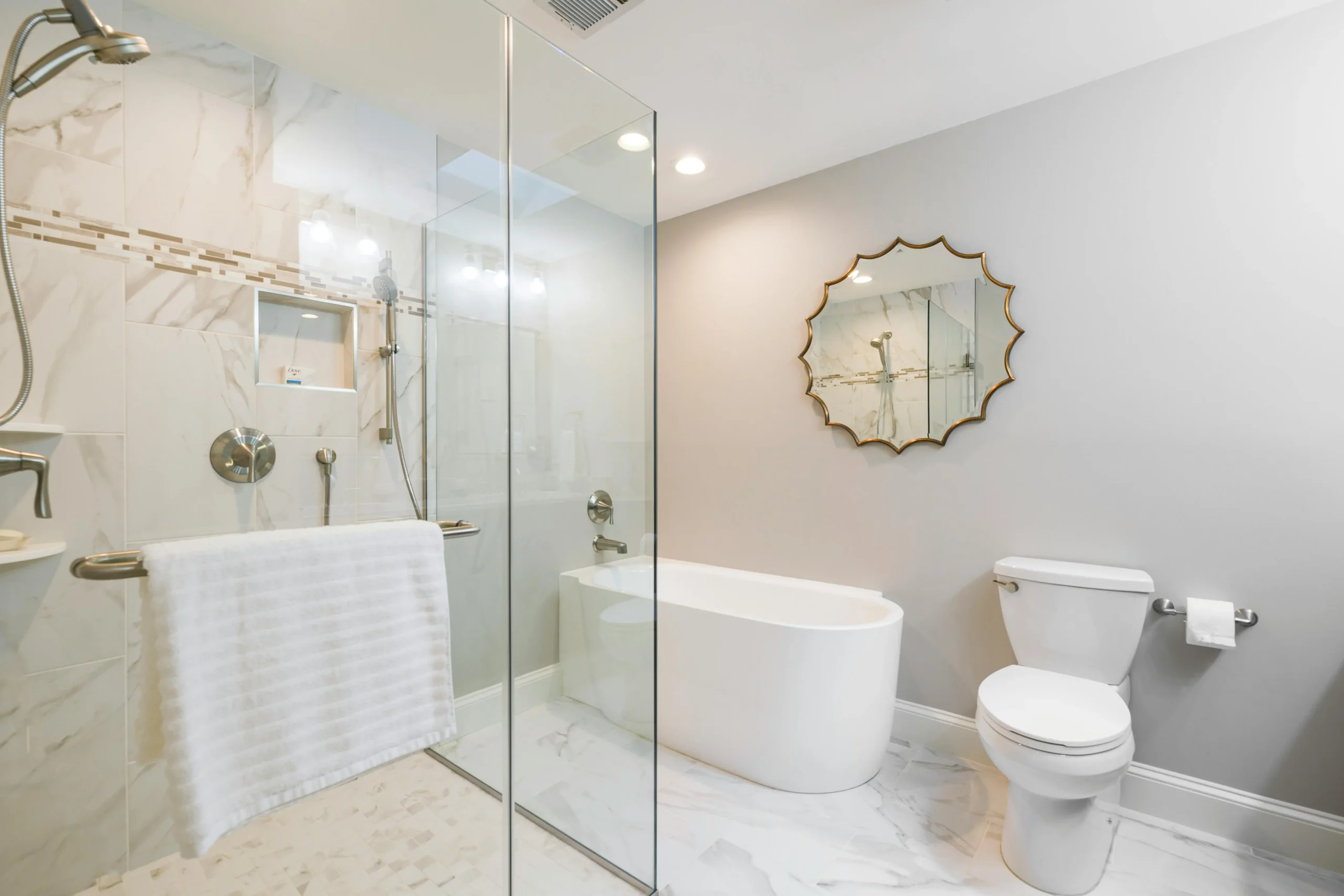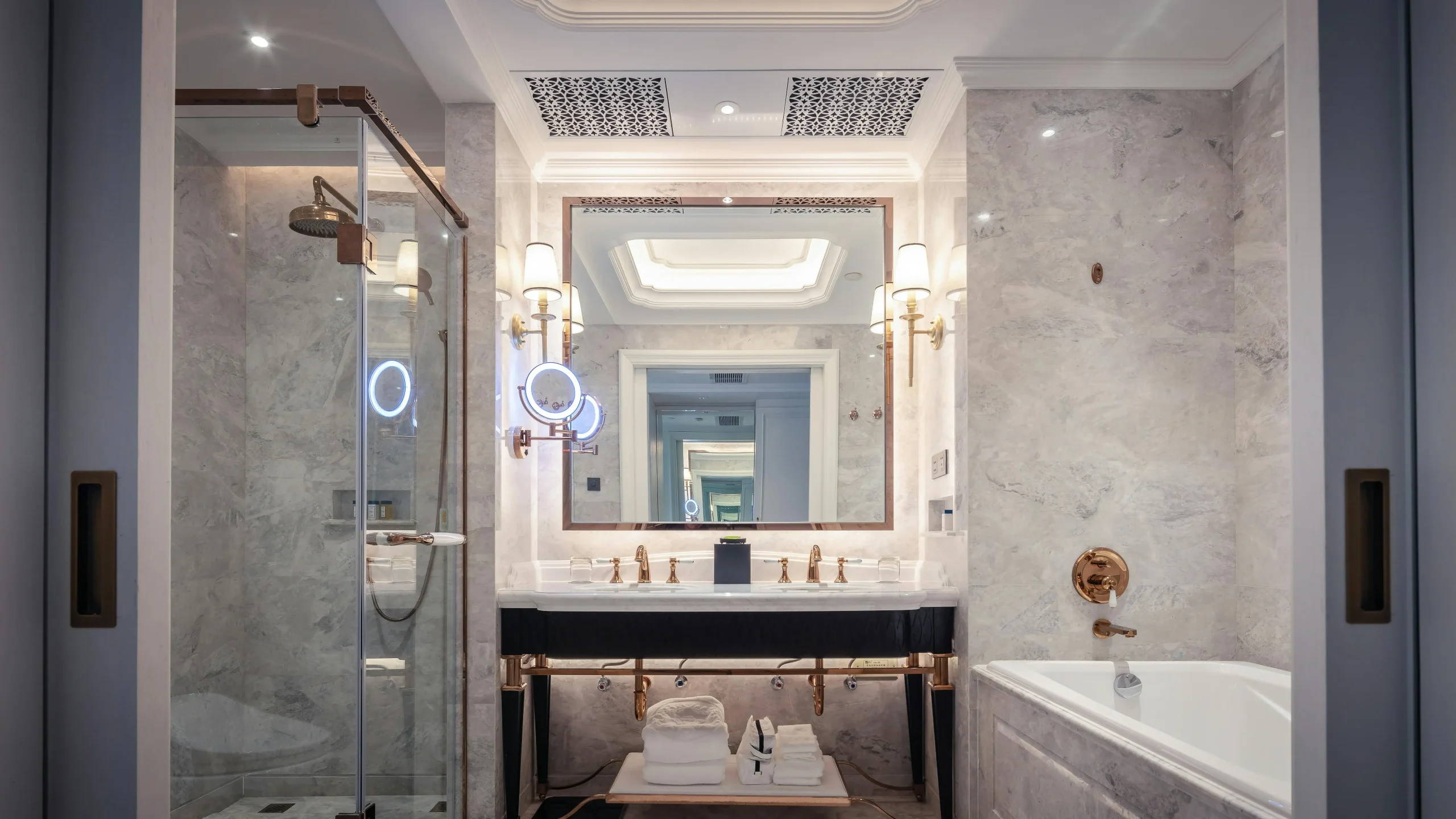Breaking Down Denton Kitchen Remodel Costs
A kitchen remodel in Denton can vary greatly in cost, with a wide range of factors influencing the total expense. On average, homeowners can expect to pay anywhere from $15,000 to $50,000 for a kitchen remodel, but this number can fluctuate depending on the extent of the project. A more modest update, such as replacing countertops, installing new appliances, or adding a backsplash, will generally cost between $15,000 and $25,000. However, if you’re planning a major overhaul that includes custom cabinetry, structural changes, new plumbing or electrical systems, or luxury finishes like high-end flooring, the price can easily exceed $40,000 or even $50,000. The primary factors contributing to these costs are the size of the kitchen, the materials chosen, and the labor involved. Larger kitchens, for instance, require more materials and more labor to install, which will push up the cost. Custom designs and premium materials also add a significant amount to the budget, while simple, stock solutions keep costs lower. Understanding the cost breakdown early on in the process allows you to make informed decisions and ensure you stay within your desired budget.
Factors Influencing Remodeling Costs
There are several key factors that affect the cost of a kitchen remodel in Denton, and it’s important to take each into consideration as you plan your project. One of the biggest influencers is the scope of the remodel. If you’re updating the look of your kitchen without making major changes—like installing new countertops, painting cabinets, or replacing outdated appliances—the costs will generally be lower. On the other hand, a more comprehensive remodel that involves relocating plumbing, electrical work, or reconfiguring the layout of your kitchen can quickly drive up the price. Materials also have a significant impact on your budget. For instance, granite or marble countertops, custom cabinetry, and high-end appliances will raise the overall cost, while laminate, tile, or stock cabinetry are more affordable. The labor involved is another factor—more complicated projects will require skilled contractors like electricians and plumbers, which adds to the labor costs. Finally, the design complexity plays a role; if you’re looking for a highly customized kitchen, such as one with built-in features or advanced storage solutions, it will likely cost more. By understanding these factors and how they impact your budget, you can better plan your remodel and avoid surprises.
Material Costs for Major Kitchen Renovations
Material costs are one of the biggest contributors to your kitchen remodel budget, especially for major renovations. Key materials, such as cabinets, countertops, flooring, and appliances, will be at the forefront of your budget considerations. Cabinetry is often the largest single expense in a remodel, with custom cabinets costing significantly more than pre-made or semi-custom options. Depending on the size of your kitchen and the complexity of the design, cabinetry can account for up to 40% of your remodel budget. Countertops come next in terms of cost, with materials like granite, quartz, or marble being on the high end, while laminate or butcher block options offer a more budget-friendly alternative. For flooring, hardwood and stone are generally more expensive, while vinyl or ceramic tile can be more affordable options. Appliances are another significant cost, especially if you opt for high-end models such as smart refrigerators, professional-grade ranges, or built-in dishwashers. These luxury items can greatly increase your remodel budget. By carefully choosing materials that align with both your style and budget, you can strike the right balance between quality and cost.
Denton Labor Costs for Kitchen Remodels
Labor costs are another significant aspect of your kitchen remodel budget, typically accounting for 20% to 35% of the total project cost. The overall labor expense can vary depending on the complexity of the remodel and the specific trades required for the project. If your remodel involves moving plumbing, electrical systems, or making structural changes to the layout, you’ll need specialized professionals such as plumbers, electricians, and carpenters, which will increase the labor costs. On the other hand, a simple cosmetic update that doesn’t involve changing the layout may require less specialized labor, reducing the cost. Contractor fees also play a role in labor costs. More experienced contractors or those with specialized expertise may charge higher rates, but they often provide more value in terms of quality and efficiency. Additionally, the timeline of the project can influence labor costs—longer projects or those with tight deadlines may require additional labor to keep things on schedule. Getting multiple quotes from contractors and ensuring they’re licensed, insured, and experienced in kitchen remodels can help you make an informed decision about labor costs and ensure that the work is done to a high standard.
Kitchen Remodel Cost Guide for Beginners
For those new to kitchen remodeling, it’s helpful to have a basic guide to understand the range of costs involved. A basic remodel, which might include updating appliances, installing new countertops, and painting cabinets, can typically cost between $10,000 and $20,000. If you’re looking to make more significant changes—such as reconfiguring the layout, adding custom cabinetry, or replacing flooring—the cost can rise to $20,000 to $35,000. A high-end remodel, which might include luxury features like custom cabinetry, top-of-the-line appliances, designer lighting, and high-end countertops, can cost $35,000 or more. For beginners, it’s essential to prioritize the aspects of your remodel that will have the most impact. Start by understanding your kitchen’s layout and how much work you want to put into it. Do you want to keep the layout and make cosmetic changes, or are you looking to fully customize the space with new features and layouts? Budgeting for materials, labor, and any unforeseen issues that arise during the remodel is crucial. By setting a realistic budget and focusing on your priorities, you can achieve the kitchen you want while staying within your means.
Budgeting Tips for Kitchen Remodels
Creating a budget for a kitchen remodel can feel overwhelming, but with the right planning, you can ensure that your project stays on track financially. Start by setting clear goals for your remodel and decide which elements are most important to you. For example, if high-end cabinetry is a priority, allocate more of your budget to that item, and consider saving on other materials like flooring or countertops. Prioritize essential improvements that add value, such as replacing old appliances or upgrading plumbing, over purely cosmetic changes. Be realistic about your budget, and make sure to account for the cost of labor, as it typically makes up 20-35% of the total price. It’s also wise to set aside a contingency fund (typically 10-15% of your budget) to cover any unexpected expenses that arise during the remodel. Shop around for discounts on appliances, materials, and fixtures, and consider working with your contractor to identify cost-effective alternatives to expensive options. Don’t forget to factor in permit fees or additional costs like demolition if you’re making structural changes. By planning carefully and sticking to your priorities, you can complete your kitchen remodel on budget and achieve your design goals.
High-End vs. Budget Kitchen Remodel: Cost Differences
The key differences between a high-end and budget kitchen remodel are the materials used and the level of customization involved. A budget remodel typically involves stock cabinetry, laminate countertops, and standard appliances. While these options may not offer the same level of customization or luxury, they still provide an updated look and improve the kitchen’s functionality without breaking the bank. Budget remodels often focus on making cosmetic updates—such as fresh paint, new lighting, and affordable flooring—rather than extensive structural changes. These projects typically cost between $10,000 and $20,000. In contrast, a high-end remodel focuses on custom cabinetry, luxury countertops (like granite or marble), high-end appliances (like built-in refrigerators and professional-grade ovens), and designer finishes. These upgrades not only improve the aesthetics but also add long-term durability and functionality to your kitchen. A high-end remodel can easily exceed $35,000, and may cost upwards of $50,000, depending on the extent of customization. While high-end remodels provide a luxurious look and feel, budget remodels are more practical for those with a limited budget or who simply want to update their kitchen’s appearance without a major overhaul.
Impact of Kitchen Size on Remodel Cost
The size of your kitchen directly impacts the overall cost of the remodel. Larger kitchens require more materials—such as cabinets, countertops, and flooring—and more labor to install them, which means they typically cost more to renovate. For a small kitchen, which might be 100 square feet or less, a remodel can cost between $10,000 and $20,000. However, for a larger kitchen, such as one over 200 square feet, you can expect to spend anywhere from $25,000 to $50,000 or more, depending on the complexity of the remodel. Larger kitchens may also require more extensive changes, such as reconfiguring the layout, adding custom cabinetry, or upgrading appliances, all of which can increase the cost. Additionally, larger kitchens may require more intricate designs to ensure they feel balanced and functional, especially if you’re looking to create an open-concept space. It’s important to account for the size of your kitchen when developing a remodel budget, as it will influence both the material and labor costs.
Average Price of Kitchen Remodels by Region
The cost of a kitchen remodel can vary significantly depending on your geographic location. For example, in Denton, the average price for a kitchen remodel typically falls between $15,000 and $35,000 for a mid-range renovation. However, in cities like New York or San Francisco, the same remodel might cost upwards of $50,000 due to higher labor rates, the cost of living, and material prices. Even within Denton, labor rates and material prices can vary depending on the contractor and the type of materials chosen. In general, more urban areas tend to have higher remodeling costs due to increased demand for skilled labor and the availability of premium materials. By understanding regional pricing differences, you can better plan your kitchen remodel budget and manage expectations. It’s also wise to obtain multiple quotes from contractors in your area to compare prices and ensure you get the best value for your project.
FAQs: Understanding Major Kitchen Value
When it comes to kitchen remodels, a common question is whether investing in a kitchen renovation will increase the overall value of your home. The answer is generally yes—an updated kitchen can have a significant impact on your home’s value. Kitchen remodels consistently rank among the top home improvement projects that provide a high return on investment (ROI). On average, homeowners can recoup about 60-80% of the cost of their remodel when selling the home, depending on the quality of the work and the local real estate market. Key elements like updated cabinetry, modern appliances, and quality countertops are highly valued by buyers. However, it’s important to match the level of your remodel with the neighborhood—if you invest too much in luxury features for a home in a lower-priced area, you may not see a substantial ROI. A kitchen remodel, when done strategically, can significantly increase your home’s appeal, functionality, and market value.
What Can I Expect for Return on Investment?
The return on investment (ROI) for a kitchen remodel can vary depending on the size and scope of the project. Typically, a kitchen remodel yields an ROI of 60-80%, meaning you can expect to recoup that percentage of your investment in the home’s resale value. For minor remodels, such as updating the countertops, replacing the sink, or installing new flooring, you may see a higher ROI because these updates enhance the kitchen’s appeal without costing a significant amount. For major remodels, such as custom cabinetry or high-end appliances, the ROI may be lower, as the costs of these upgrades may not always be reflected in the home’s selling price. However, high-end remodels often make the home more attractive to buyers, helping it sell faster and at a better price. Ultimately, whether you’re planning to stay in your home long-term or sell soon, a kitchen remodel can provide a strong ROI when executed thoughtfully and aligned with your home’s value and neighborhood trends.
Frequently Asked Questions
Is $30,000 enough for a kitchen remodel?
Yes, a $30,000 budget can be a very workable amount for a mid-range kitchen remodel if it’s used wisely and planned carefully. With this budget, homeowners can usually update their kitchen with semi-custom cabinets, quartz or granite countertops, modern appliances, updated flooring, and stylish lighting. It’s a strong middle-ground budget that allows for meaningful upgrades without going into the high-end luxury range. To maximize the impact, it’s best to keep the existing layout intact to avoid costly plumbing or electrical relocations. Opting for quality, mid-tier finishes rather than custom or imported options can also help stretch your budget further. With the right contractor and a focus on essentials, a $30,000 remodel can result in a beautiful, modern, and highly functional kitchen that meets both style and practicality goals. Always reserve about 10% of your budget as a contingency for any unexpected surprises that arise during demolition or construction.
What is a good budget for a kitchen remodel?
A good budget for a kitchen remodel depends on the size of your kitchen, the scope of your project, and the materials and finishes you want to include. Typically, a good starting point is to invest about 10–15% of your home’s current value into your kitchen remodel. For most homeowners, this translates to a range of $25,000 to $60,000. Within this range, you can often afford new cabinets, upgraded countertops, energy-efficient appliances, quality flooring, and enhanced lighting. If you’re making major layout changes or installing high-end features like custom cabinetry or professional-grade appliances, the budget may need to be higher. Conversely, smaller kitchens or projects focused more on surface updates can be completed with less. A well-planned budget should also include a buffer for unexpected expenses, typically around 10–15%, as older homes or hidden damage can cause costs to rise. Consulting with a kitchen designer or contractor can help you allocate your budget more effectively.
What is the average cost of a brand new kitchen?
The average cost of a brand new kitchen in the U.S. ranges from $25,000 to $75,000, with many remodels falling somewhere in the $35,000 to $50,000 range. A kitchen with basic upgrades—such as new paint, cabinet hardware, appliances, and laminate countertops—can sometimes be completed for under $25,000. For a mid-range remodel that includes new semi-custom cabinets, quartz or granite countertops, tile backsplash, upgraded lighting, and energy-efficient appliances, the cost is typically around $40,000 to $60,000. If you are looking for a fully customized kitchen with luxury materials, top-tier appliances, and custom millwork, the price can climb above $75,000. Location, kitchen size, layout changes, and labor rates also play major roles in the final cost. Keep in mind that cabinetry, labor, and countertops usually make up the biggest portion of the budget. Planning ahead and setting realistic goals will help you stay on budget and get the kitchen you want.
What is the most expensive part of a kitchen remodel?
Cabinetry is often the most expensive part of a kitchen remodel, sometimes accounting for 25% to 35% of the entire renovation budget. Custom or semi-custom cabinets offer personalized features and fit your space perfectly, but they also come at a higher price point compared to stock cabinets. The cost increases with specialty finishes, built-in organizers, soft-close hardware, and taller upper cabinets. After cabinetry, labor is typically the next largest cost, particularly if you’re changing the layout, moving plumbing, or upgrading electrical systems. Countertops, especially if made from quartz, granite, or marble, are another significant expense. Appliances can also consume a notable portion of your budget if you opt for high-end or professional-grade models. While features like lighting, backsplash, and flooring are generally more affordable individually, they can add up quickly when combined. Ultimately, where you decide to invest most of your money depends on your personal priorities, whether that’s storage, durability, style, or technology.

